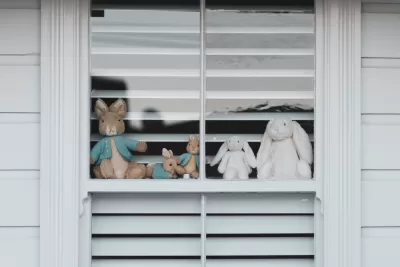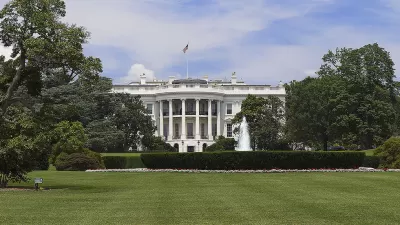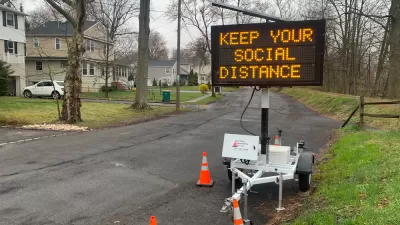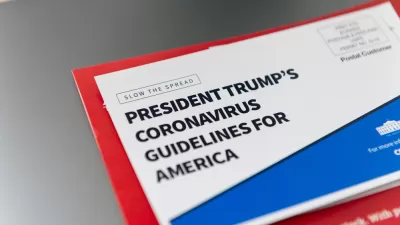During March and April, most states shut down all but essential services in order to "flatten the curve," and it largely worked. What happened afterward didn't. U.S. PIRG has organized a campaign to start the process over and do it right.

"More than 150 prominent U.S. medical experts, scientists, teachers, nurses and others have signed a letter urging political leaders to shut down the country and start over to contain the surging coronavirus pandemic," report Shelby Lin Erdman, Jacqueline Howard, Jen Christensen and Katia Hetter for CNN on July 23.
"The best thing for the nation is not to reopen as quickly as possible, it's to save as many lives as possible," they wrote in the document, which was sent Thursday to the Trump administration, leading members of Congress and state governors.
The first two pages and two paragraphs of the 82-page letter [pdf], written by Matt Wellington, the public health campaigns director, U.S. PIRG, is followed by signatures with affiliations, the first being Ezekiel J. Emanuel, University of Pennsylvania, who served as a special advisor for health policy in the Obama administration.
The letter and the public health campaign is ongoing; health professionals can add their name to the letter and others can sign the petition. PIRG, which stands for Public Interest Research Group, publishes an annual highway boondoggles report, as well as other transportation studies posted here.
"The only way to reopen the economy and the country safely is to follow a set of protocols that public health experts deem necessary for controlling the spread of Covid-19, the letter contends," adds CNN.
"Continuing on the path we're on now will result in widespread suffering and death. And for what? Health experts laid out criteria for how to reopen safely. It's time to listen to them," Wellington said.
Indeed, the criteria, titled, “Opening Up America Again” (posted here), was written by health experts on the White House Coronavirus Task Force. Released on April 16, it set a framework for a three-phased approach to help state and local officials when reopening their economies. However, President Trump "cheer[ed] on governors even as they ignore[d] White House coronavirus guidelines in race to reopen," notes a Washington Post headline on May 4.
Trump still pushing reopenings
The president hasn't changed his tune. "I really do believe a lot of the governors should be opening up states that they’re not opening," Trump said during a press briefing on vaccine progress on July 27 held at Fujifilm Diosynth Biotechnologies in Morrisville, North Carolina.
"The message doesn't align with what members of the White House coronavirus task force have advised governors in states where cases are increasing," reported CNN. "Health experts like Drs. Anthony Fauci and Deborah Birx have said states with spiking case counts should close bars and indoor restaurants, among other restrictions."
In fact, on July 8, Fauci said that "states with rapidly expanding coronavirus outbreaks should seriously consider 'shutting down' like the country did when the virus first hit the U.S. in March," reported CNBC, though he walked it back the next day, "emphasizing that stay-at-home orders should remain a last resort and suggesting a pause in reopening plans instead," reported The Washington Post.
California legislator pushes for do-over
"A Bay Area lawmaker is calling on Gov. Gavin Newsom to put most of California under a second shelter-in-place order, arguing that the state’s management of the coronavirus pandemic is spiraling out of control," reports Alexei Koseff for the San Francisco Chronicle on July 23.
State Sen. Steve Glazer, D-Orinda, said the more incremental steps Newsom has taken over the past month, including requiring Californians to wear face coverings in public and closing some businesses such as bars and indoor restaurants, have not contained a surging caseload. He said the governor should shift strategies to try to eradicate the virus completely, rather than simply managing its spread.
It's surprising to see Glazer, who "has been criticized in the past by liberal activists for being too business-oriented," make this bold call. Glazer, the one senate Democrat who voted against the historic gas tax increase in 2017, explains:
“Public health and the economy are handcuffed together. We can’t have one without the other,” Glazer said. “We have to do this right, because that’s the only way to bring our economy back.”
Texas governor not budging
Alison Durkee of Forbes reported on the U.S. PIRG campaign with a focus on Texas where Gov. Greg Abbott clings to the hope that his July 2 mask mandate will preclude a shutdown.
“The only way we can go about the process of not shutting down is for people to embrace...wearing a face mask," Abbott said on CNBC Friday.
“I understand that there’s an enormously difficult set of tradeoffs that have to be navigated when you contemplate locking the economy down,” statistics professor James Scott, a member of the University of Texas COVID-19 Modeling Consortium, told the Texas Tribune [on July 24]. “But I think it would be premature to rule out the possibility of subsequent lockdowns if things got really, really bad.”
Things got really bad in South Texas, particularly in Rio Grande City, where over 94 percent of the population is Latinx. Starr County Memorial Hospital is so overwhelmed with COVID-19 patients that ethics committees are being formed to determine who should be sent home to die.
-
Bars or Schools? Governors Need to Decide, July 6, 2020
-
California Rolls Back, July 14, 2020
FULL STORY: Shut down the country and start over to contain Covid-19, US medical experts urge political leaders

Study: Maui’s Plan to Convert Vacation Rentals to Long-Term Housing Could Cause Nearly $1 Billion Economic Loss
The plan would reduce visitor accommodation by 25,% resulting in 1,900 jobs lost.

Alabama: Trump Terminates Settlements for Black Communities Harmed By Raw Sewage
Trump deemed the landmark civil rights agreement “illegal DEI and environmental justice policy.”

Why Should We Subsidize Public Transportation?
Many public transit agencies face financial stress due to rising costs, declining fare revenue, and declining subsidies. Transit advocates must provide a strong business case for increasing public transit funding.

Paris Bike Boom Leads to Steep Drop in Air Pollution
The French city’s air quality has improved dramatically in the past 20 years, coinciding with a growth in cycling.

Why Housing Costs More to Build in California Than in Texas
Hard costs like labor and materials combined with ‘soft’ costs such as permitting make building in the San Francisco Bay Area almost three times as costly as in Texas cities.

San Diego County Sees a Rise in Urban Coyotes
San Diego County experiences a rise in urban coyotes, as sightings become prevalent throughout its urban neighbourhoods and surrounding areas.
Urban Design for Planners 1: Software Tools
This six-course series explores essential urban design concepts using open source software and equips planners with the tools they need to participate fully in the urban design process.
Planning for Universal Design
Learn the tools for implementing Universal Design in planning regulations.
Smith Gee Studio
Alamo Area Metropolitan Planning Organization
City of Santa Clarita
Institute for Housing and Urban Development Studies (IHS)
City of Grandview
Harvard GSD Executive Education
Toledo-Lucas County Plan Commissions
Salt Lake City
NYU Wagner Graduate School of Public Service





























